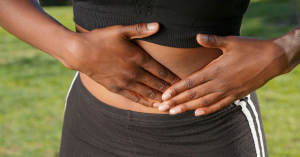Polycystic Ovary Syndrome is a condition that affects 7-10% of women of childbearing age, making it an extremely common yet debilitating condition.
But did you know that there are four different variations of the condition, and that you can have more than one at the same time? Here is a breakdown of the different types and the unique elements that characterise them.
- Insulin Resistant PCOS
The most common kind, insulin resistant PCOS affects up to 80% of PCOS sufferers. It occurs when the muscles, fat and liver don’t respond effectively to the hormone insulin. Insulin acts like a key in the body, unlocking the cells so that sugar can pass in to them from the blood stream and be converted in to energy. When your cells become somewhat numb to insulin’s normal effects, the pancreas overcompensates to produce more and more. As a result, glucose and insulin build up in the blood stream and cause symptoms such as hyperglycemia, weight gain, fatigue and more.
Research shows that excess insulin inhibits the liver’s production of another hormone called SHBG (sex hormone binding globulin) which controls the level of sex hormones active in the body. This has been shown to increase the level of androgens like testosterone, one of the root causes of PCOS.
2. Inflammatory PCOS
Inflammation is often the body’s first response to an outside invader perceived as a threat, such as a virus, injury or free radical. Whether manifesting as internal or external swelling, redness, stiffness, aches or pain, inflammation is in fact an attempt by your body to expel foreign substances and heal itself.
Unfortunately, the everyday toxins of modern life have caused our inflammatory responses to become muddled. The body can often misinterpret our own tissues and cells as an external threat, which may cause the distressing rise in auto-immune conditions and endocrine disorders like PCOS in recent years.
Though the exact relation between chronic inflammation and PCOS is currently unknown, early research has found that women with PCOS tend to have higher biomarkers for inflammation. It is thought that changes in the immune system’s healthy functioning may cause the ovaries to produce excess testosterone, resulting in PCOS, or that the inflammation itself is instigated by other related conditions such as insulin-resistance.
3. Adrenal PCOS
This subtype of PCOS is caused by the adrenal glands. These small, triangular shaped glands located on top of your kidneys produce many of the body’s important hormones and help regulate your blood pressure, metabolism and immune system.
Some of the main hormones influenced by the function of the adrenal glands are cortisol, adrenaline, DHEA and other related stress hormones. Thus stress levels are an important contributor to how well these glands can function, in that too much of it can cause the balance to be thrown off quickly.
In response to physical or emotional pressure like injury, trauma, work-related stress, even breakups, the body responds by producing the hormone cortisol. Cortisol is part of our body’s fight, flight, freeze response in that it increases sugar in the blood stream and suppresses the digestive, reproductive and growth processes. In dangerous situations, this helps us to have more energy and be singularly focused without energy being utilised for other bodily functions.
That said, our constantly stressful lives can cause the adrenal glands to become overwhelmed and begin overproducing cortisol and androgens such as DHEAS and testosterone, again leading to the development of PCOS.
4. Post Pill PCOS
Some people experience PCOS symptoms after coming off of birth control like the progesterone-only pill (POP) or combined oral contraceptive pill (COC). One of the most highly debated topics amongst endocrine specialists, the jury is still out as to whether or not this is purely a coincidence, or wether the pill can actually be a catalyst for developing PCOS.
Synthetics progestins are used in birth control to suppress ovulation and stop you from getting pregnant. After coming off the pill the ovaries suddenly start releasing estrogen and progestogen again, alongside a natural surge in other hormones including the androgens which could, in theory, lead to PCOS.
As of now there is no scientific evidence evidence to prove that PCOS can be caused by the contraceptive pill, though as with most conditions linked to women’s health, the research is massively limited.







